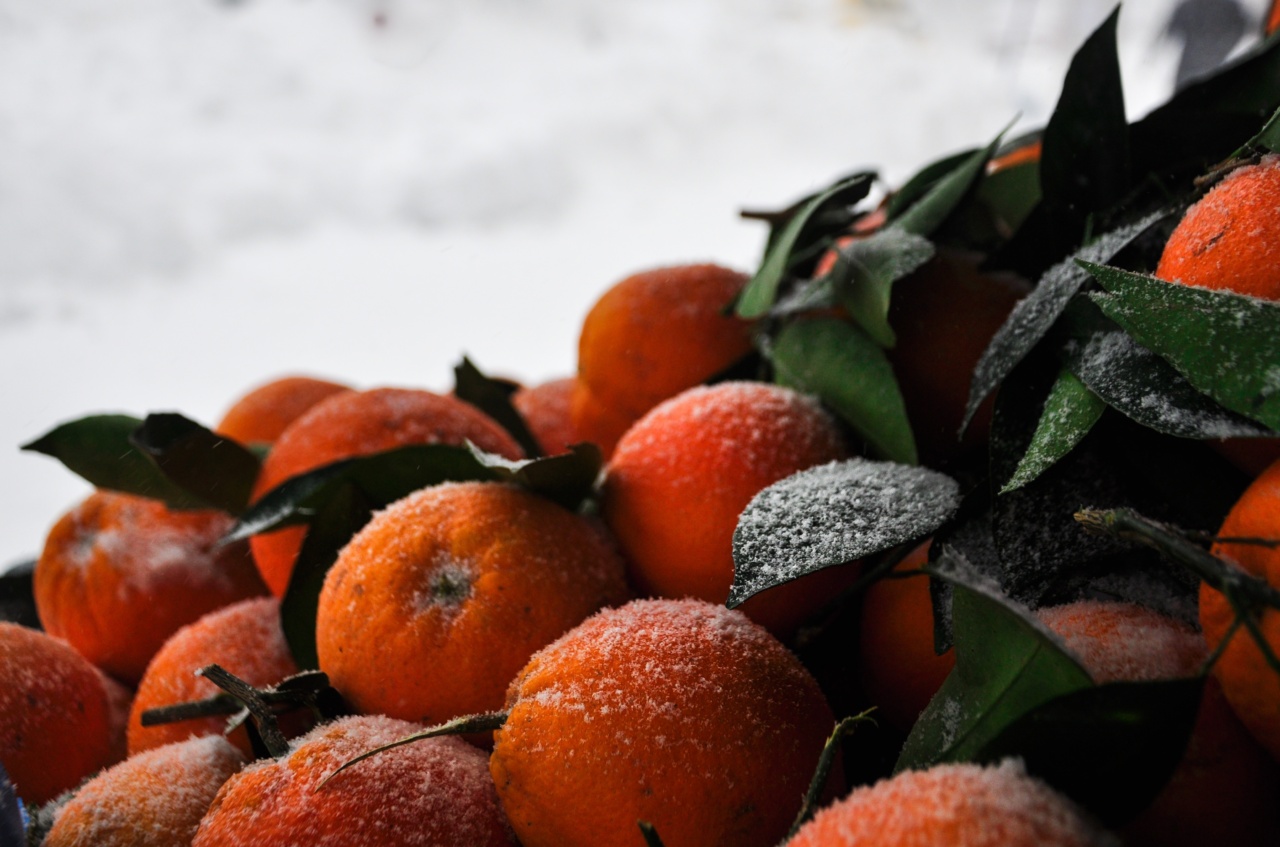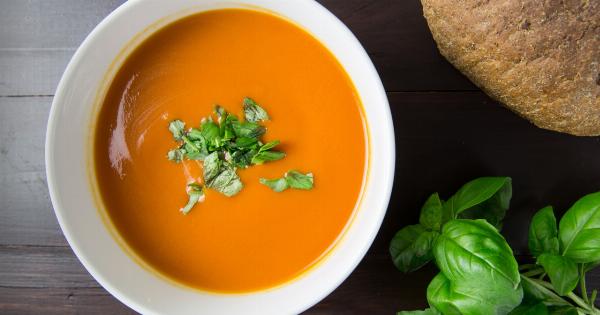The winter season brings with it colder weather, cozy moments by the fireplace, and the festive cheer of the holiday season.
However, the cooler temperatures also coincide with an increased risk of seasonal illnesses and a generally weakened immune system. To stay healthy and strong throughout the winter, it’s essential to pay extra attention to your diet and ensure you’re getting all the necessary vitamins and nutrients.
In this article, we will explore the top vitamins that can help boost your health during the winter months and keep those common winter ailments at bay.
1. Vitamin C
Vitamin C is a powerful antioxidant that plays a crucial role in supporting the immune system. It helps stimulate the production of white blood cells, which are responsible for fighting off infections and viruses.
Consuming an adequate amount of vitamin C can help reduce the duration and severity of colds and flu.
During the winter season, citrus fruits like oranges, lemons, and grapefruits are widely available and are excellent sources of vitamin C. Other fruits such as strawberries, kiwi, and pineapple also contain this immune-boosting vitamin.
Additionally, vegetables like broccoli, bell peppers, and Brussels sprouts are rich in vitamin C.
2. Vitamin D
Vitamin D is often referred to as the sunshine vitamin because our bodies produce it when exposed to sunlight. However, during winter, when daylight hours are shorter and people spend more time indoors, our vitamin D levels tend to drop.
This can weaken our immune system and increase the risk of respiratory infections.
To maintain optimal levels of vitamin D during winter, consider incorporating vitamin D-rich foods into your diet. Sources of vitamin D include fatty fish like salmon and tuna, fortified dairy products, and egg yolks.
Additionally, some individuals may need to take vitamin D supplements, especially those living in regions with limited sunlight during winter.
3. Vitamin A
Vitamin A is essential for maintaining the health of our skin and mucous membranes, which act as barriers against pathogens. It also plays a crucial role in supporting the immune system.
A deficiency in vitamin A can make us more susceptible to infections and slow down the healing process.
Foods rich in vitamin A include carrots, sweet potatoes, spinach, and kale. These vegetables are not only nutritious but also provide additional antioxidants that contribute to overall health.
4. Vitamin E
Vitamin E is another powerful antioxidant that helps protect the body’s cells from damage caused by free radicals. It also supports the immune system and aids in the formation of red blood cells.
Some studies suggest that vitamin E may particularly benefit older adults by improving immune function.
Good dietary sources of vitamin E include nuts and seeds, such as almonds, sunflower seeds, and peanuts. Adding a handful of these nutritious snacks to your daily routine can ensure you’re getting enough vitamin E to support your immune system.
5. B Vitamins
The group of B vitamins, including B6, B9 (folate), and B12, are essential for maintaining a healthy immune system. They help in the production and function of white blood cells and play a vital role in energy metabolism.
Good sources of B vitamins include whole grains, legumes, leafy greens, eggs, and lean meats. Incorporating these foods into your diet can help support your immune system and ensure your body has the necessary energy to ward off winter illnesses.
6. Zinc
Zinc is a mineral that is crucial for a well-functioning immune system. It helps in the development and activation of immune cells, as well as the production of antibodies.
Zinc deficiency can increase the susceptibility to infections, especially in children and older adults.
Some food sources of zinc include oysters, red meat, poultry, beans, nuts, and whole grains. Ensuring adequate zinc intake can help strengthen your immune system and protect against common winter illnesses.
7. Probiotics
While not a vitamin, probiotics are beneficial bacteria that support the health of our gut microbiome. A healthy gut plays a vital role in maintaining overall immune function and preventing illnesses.
During the winter months, it becomes increasingly important to support your gut health to keep your immune system strong.
Include foods such as yogurt, kefir, sauerkraut, and kimchi in your diet to introduce probiotics naturally. You can also consider taking high-quality probiotic supplements to ensure you’re getting an adequate amount of beneficial bacteria.
8. Vitamin B12
Vitamin B12 is essential for maintaining a healthy nervous system and producing red blood cells. It also supports the immune system and helps prevent anemia, which can leave you feeling fatigued and weak.
Animal products, such as meat, fish, eggs, and dairy, are the primary sources of vitamin B12. For individuals following a plant-based diet, fortified products like plant-based milks and cereals can provide this important nutrient.
9. Vitamin K
Vitamin K is essential for blood clotting and proper bone health. It also has immune-boosting properties. While vitamin K deficiency is rare, ensuring an adequate intake is crucial for overall health.
Leafy greens, such as kale, spinach, and broccoli, are excellent sources of vitamin K. Consuming a variety of these vegetables can help provide the necessary amount of this vitamin to support your immune system.
10. Selenium
Selenium is a mineral that plays a crucial role in the immune system response and antioxidant function. It helps protect cells from damage and supports the production of immune cells.
Selenium deficiency can impair immune function and increase the risk of infections.
Include selenium-rich foods in your diet, such as Brazil nuts, seafood, lean meats, and whole grains. However, it is essential not to consume excessive amounts of selenium, as high levels can be toxic.
Stick to the recommended daily intake and consult with a healthcare professional if you have any concerns.


























